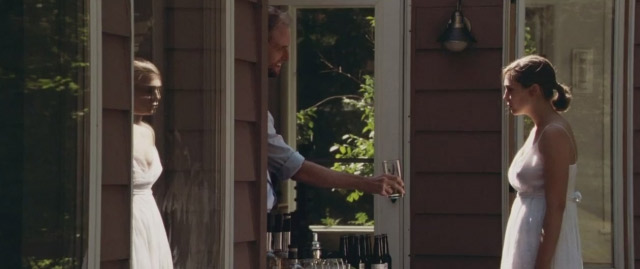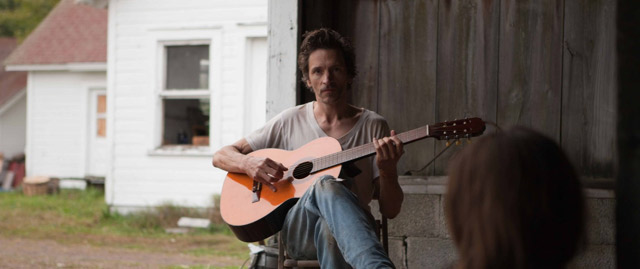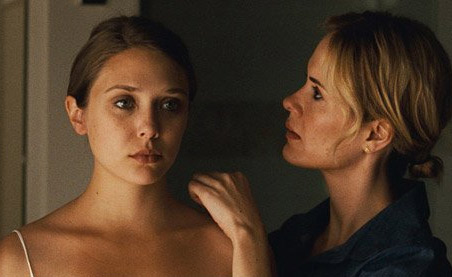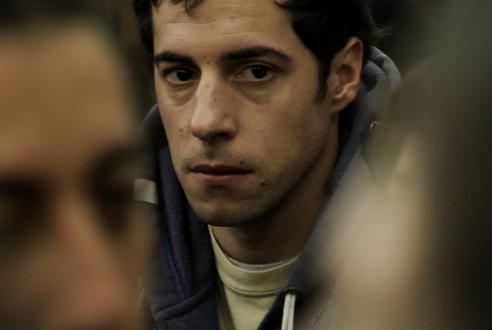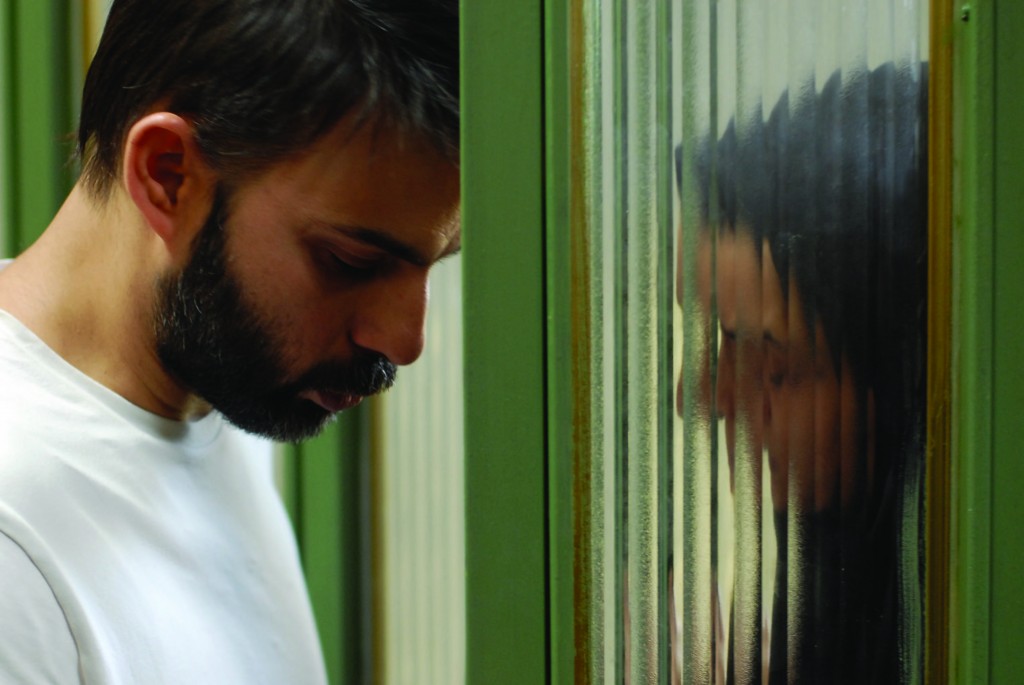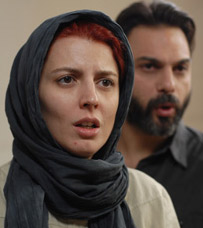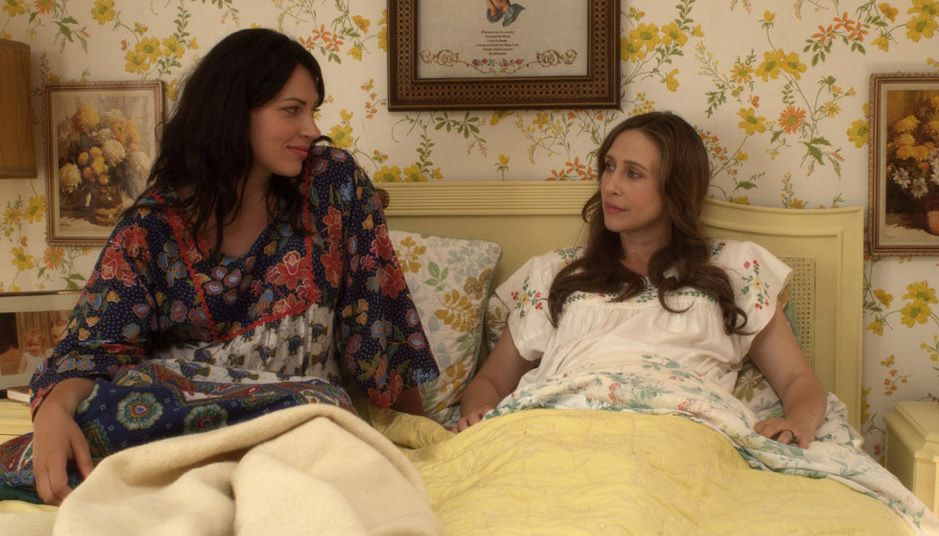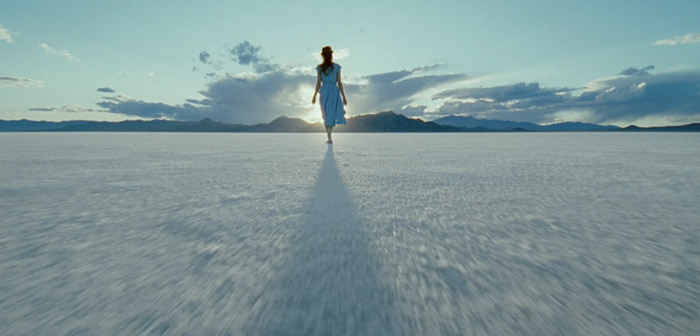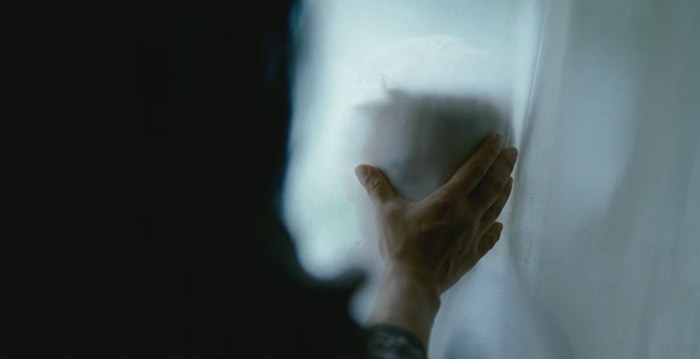Hit Me With Your Best Shot: "The Exorcist"
 Wednesday, May 9, 2012 at 10:19PM
Wednesday, May 9, 2012 at 10:19PM  The Hit Me With Your Best Shot series is deceptively simple. Choose a single shot from a pre-selected movie that you think is best, best being in the eye of the beholder. Tonight we're looking at The Exorcist (1973). And for me at least, it's the first time I've looked at it. That's not quite as shocking as your 12 year old daughter's head spinning 'round 180º, but maybe it's close.
The Hit Me With Your Best Shot series is deceptively simple. Choose a single shot from a pre-selected movie that you think is best, best being in the eye of the beholder. Tonight we're looking at The Exorcist (1973). And for me at least, it's the first time I've looked at it. That's not quite as shocking as your 12 year old daughter's head spinning 'round 180º, but maybe it's close.
Nearly every horror classic I've seen I've resisted in some ridiculous way: I saw Halloween at a sleepover movie marathon but it took my horror-loving friend five holidays to convince me; I first saw Silence of the Lambs because I had five nightmares about it beforehand and wanted them to end; I can't remember what prompted Rosemary's Baby but I'm willing to bet that I rented the video five times before actually watching it. And so on.
If I was ever going to watch The Exorcist, the power of blogging would have to compel me. And so it did.
And here we are in the haunted upstairs bedrooms of actress Chris MacNeil (Ellen Burstyn) and her daughter Regan (Linda Blair). The first thing that impressed me about the movie was how rooted in character it was. Director William Friedkin and the novelist screenwriter William Peter Blatty spend more than half hour with the four main characters before the devil (The Devil?) crashes the party. The first shot that I truly loved foreshadowed the horrors to come in a wonderfully lived-in nonchalant way. After Chris MacNeil unleashes a stream of profanity on an angry phone call (including, pointedly, several "Jesus Christ!"s) we cut to the middle of the night when she's woken by a phone call. I love that the shot starts in the dark and when Chris flips on the light the only face that's really illuminated, given her bleary banged face, is Regan's in a photo on the bedstand; the young girl looks actively worried for her mother which is a brilliant set decoration move. Chris hangs up the phone and the camera tracks her movements to the right until we and she realize that her daughter has crawled into bed with her. It's the first time Regan is essentially split in the film, surrounding her anxious still oblivious mother.
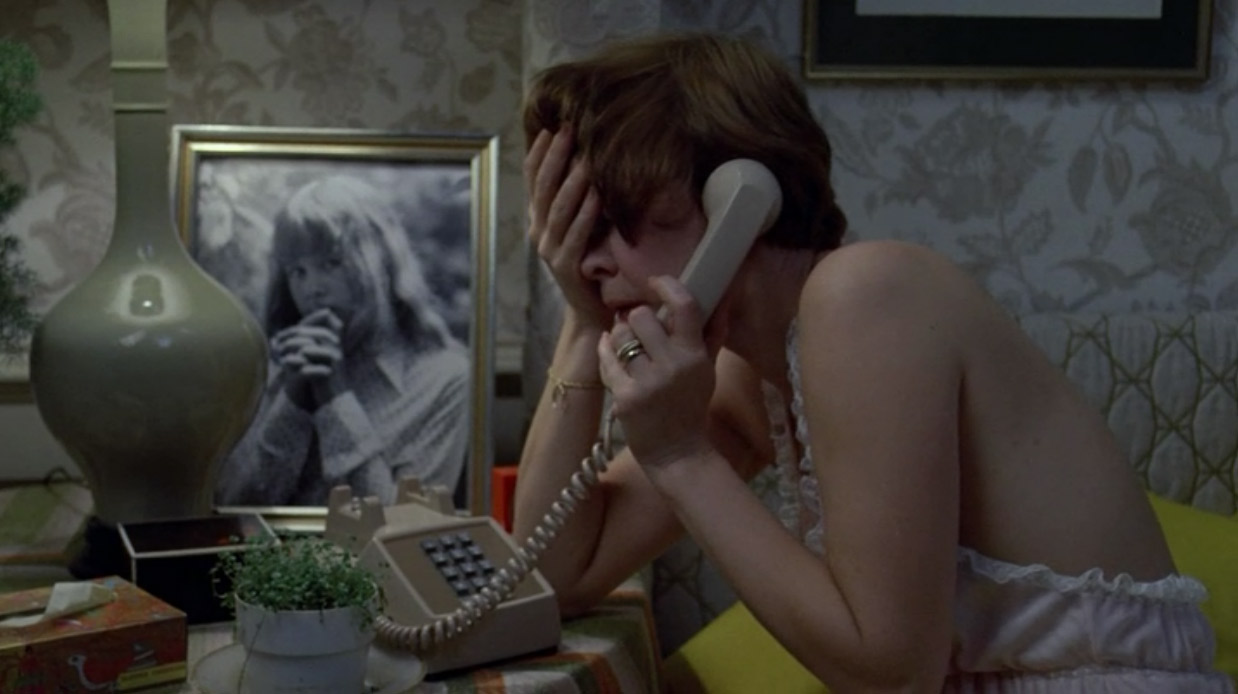
Chris: What are you doing here?
Regan: My bed was shaking. I can't get to sleep.
Here in a sweet mother/daughter moment, Regan's telling us where all the horror will be found. The next voice we here, overlap edited over the end of this shot but just barely is the devil's if you want to get metaphoric about it is Captain Howdy's (The Devil's) who is banging about in the attic. Oh Chris, soon to be overwhelmed Chris, it's not rats.
The Exorcist builds beautifully towards its truly grotesque last act but at least half of the reason it's so effective is that it never forgets who is terrified while it's terrifying us. My second favorite shot in the film is a beautifully quiet character beat for the title character(s) in the "intermission" of the exorcism.
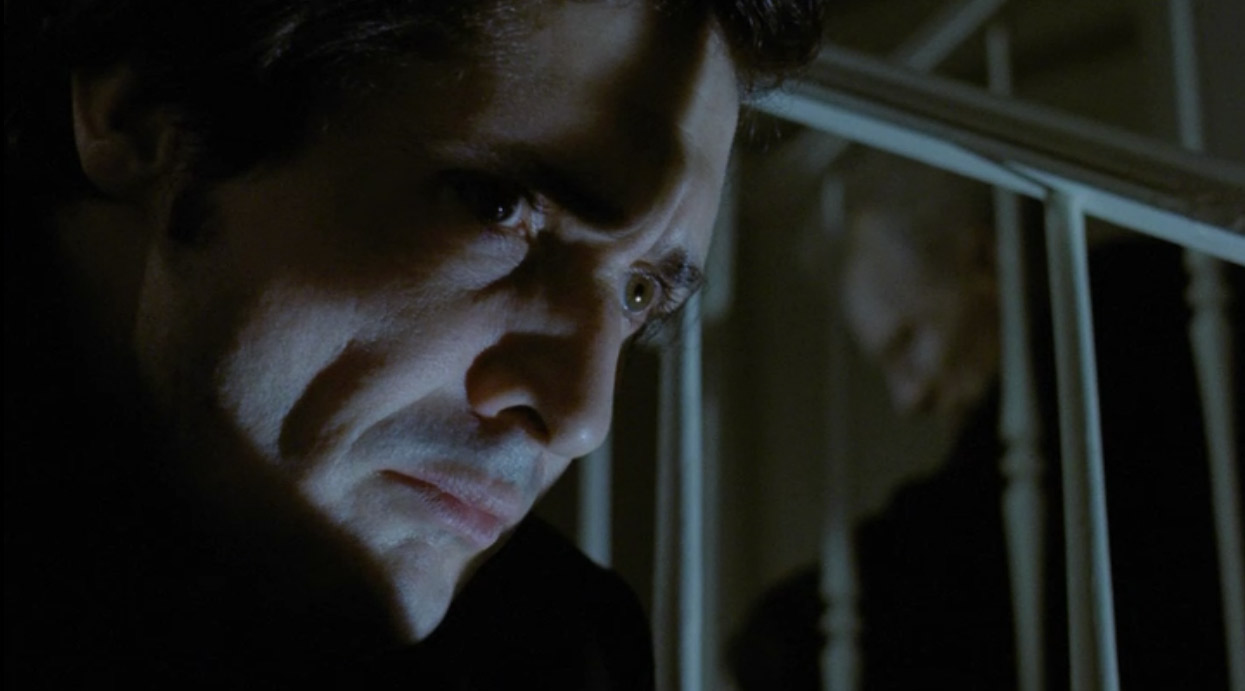 The Exorcist(s): Father Karras and Father Merrin
The Exorcist(s): Father Karras and Father Merrin
One of the movie's most disturbing famous images is "Help me" scrawled on Regan's stomach from the inside. If Father Damien Karras (Jason Miller) were to remove his clothing, wouldn't we see a similar cry for help from his private hell?
It's these quiet glimpses of internal terror that really sell the movie for me, whether it's Ellen Burstyn's increasing impotent understanding (when no one else has accepted it -- not even the priests) or Father Karras's personal doubts. This silence, this vacuum, lets the terror flood in, often courtesy of the Oscar winning sound work. In the shot above we still hear Regan's possessed wheezing from inside the bedroom, less shocking but even more unsettling than her loud profane outbursts.
This push and pull between external and internal terror, room-shaking chaos and sudden absences of sound but for Exorcist chanting to fill the void powers, for me, the most hypnotic shot in the film. The room suddenly goes quiet and we see Regan lift off the bed in crucifix pose until she's nearly touching the ceiling. A simple familiar image, yes, like you'd see in a magic show. But somehow alien and unnatural, too. Only the exorcists can break this unholy spell.
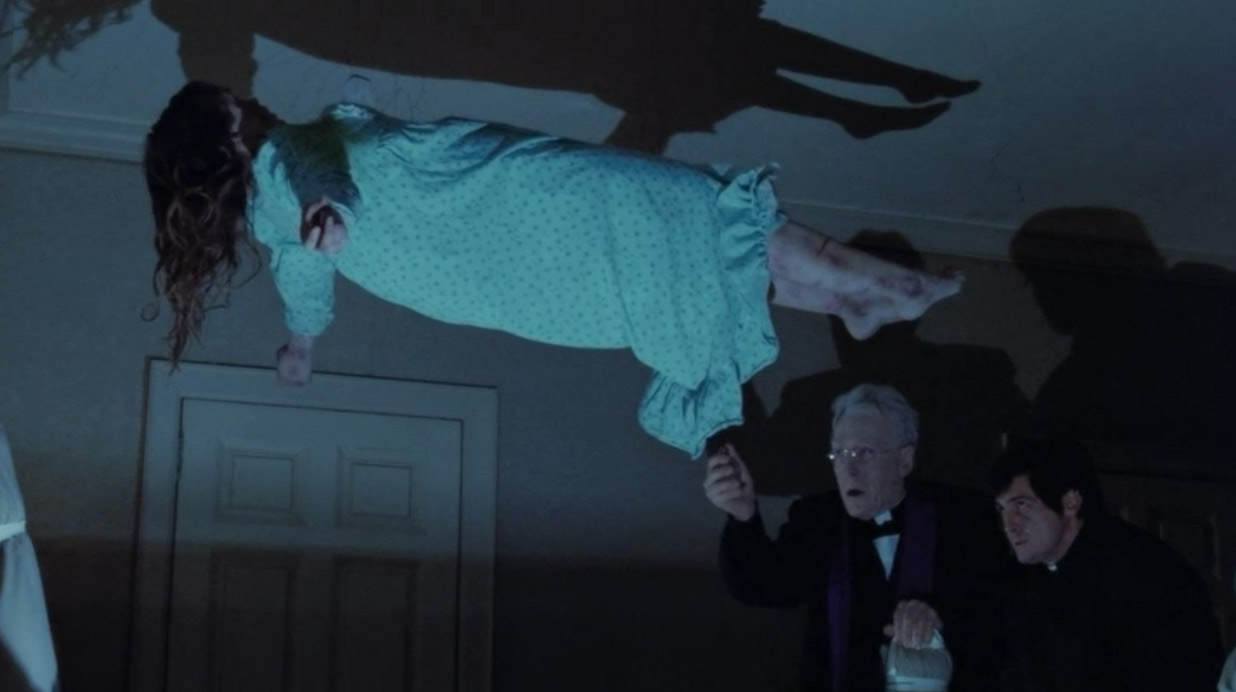
The Power of Blog Compels Them
Movies Kick Ass is Hollywood the devil?
The Tomas Experience "as sure as the sun rises, you can find evil anywhere"
Film Actually the mysteries of faith and science
The Sketchy Details Regan split in two
Antagony & Ecstasy a single mother's personal hell
Cheerful Cynicism the slow burn is the best part
Cinesnatch has mixed feelings about the movie
Okinawa Assault colours and threats
Encore's World is moved by the mother/daughter bond
Beau McCoy "The Exorcist and Nothingness"
Stranger than Most find horror in the hospital
Pussy Goes Grrr "body and soul" and Linda Blair's eyes
Next Wednesday: Edward Scissorhands (1990)... will we catch you dancing in it?
Previously: Pariah (2011), Raise the Red Lantern (1991), Serenity (2005)



